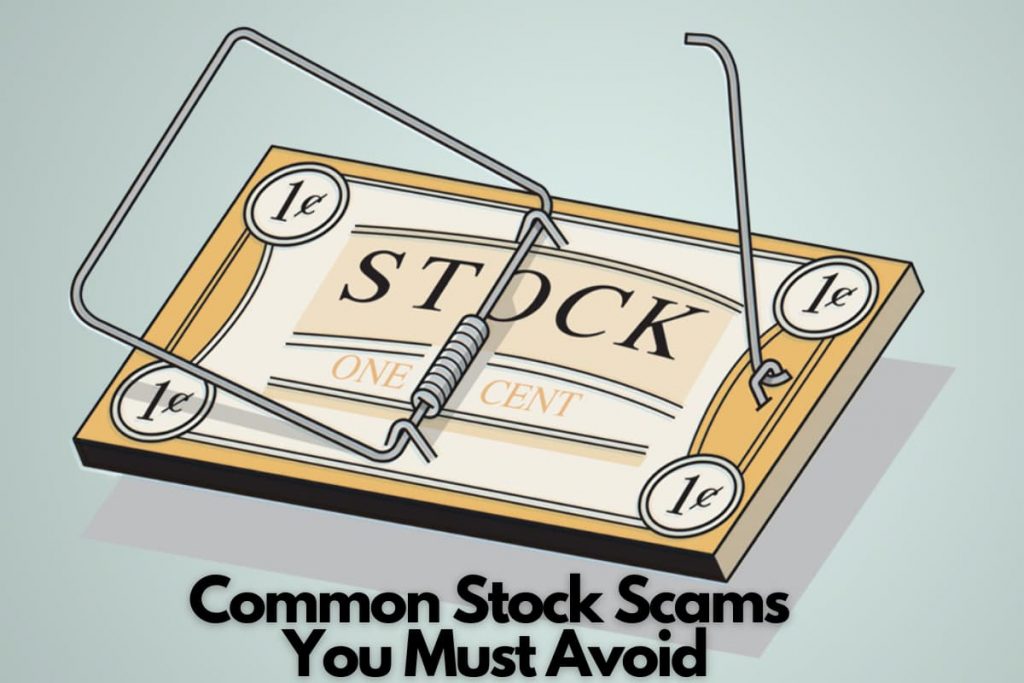
What are some of the most common stock scams any new or experienced investor should know about? From pyramid or Ponzi schemes to classic pump and dump strategies, there are many tactics con men rely on to prey on people. Here are the top 6 most popular stock scams.
Pump and Dump
Many of the stock scams we are going to focus further on are essentially pump and dump schemes. A pump and dump strategy usually starts with the massive promotion of a stock. The promotional process may vary. Some are multichannel and try to lure new investors both online and offline through cold calls. Others rely solely on online methods: social media,
- Facebook ads,
- newsletters,
- company websites,
- forums, etc.
The purpose is to draw investors into buying a company’s shares. Once many people invest money, the value rises. But this rise is usually followed by a collapse as the scam authors, those who promoted the company, sell all their shares to make big profits.
Offshore Scams
There are many types of scams that rely on offshore companies hosted by foreign, usually remote countries. Their target is investors in rich occidental countries such as the U.S. Offshore investment strategies appeal to many people because they typically promise secured returns or the possibility to enjoy lower taxes since the money made from these schemes is subject to the taxation policy of tax haven countries. In the U.S., many scammers relied on Regulation to carry out these scams.
This regulation states that U.S. companies won’t have to register their securities with the SEC when they sell them in another country to offshore investors. However, fraudsters resell Regulation S stocks to investors in the U.S. and often manage to get away with money as they can’t be found or prosecuted.
Social Media Stock Frauds
Social media is one of the foremost communication channels con artists use to promote fake stock investment opportunities. They usually offer potential investors the guarantee of high returns and low risks. Moreover, they claim they’ ve personally made significant profits by investing in that stock. To support their claims, they showcase a lavish and luxurious lifestyle in their social media posts. However, their goal is only to increase the individual stock’s value and sell their shares at a higher price. Once this happens, the value of the store usually plummets.
Pyramid Stock Schemes
A pyramid scheme, such as the famous Ponzi scheme that was carried out in the 1920s by one of the most famous con man in history, Charles Ponzi, is based on large numbers of investors. These schemes are also heavily promoted to attract as many potential investors as possible. They are called pyramid schemes because of their structure. At the pyramid base, you will find the most significant number of people who have recently joined the scheme and invested money in the company. At the top of the pyramid there are the authors of the scheme and a few initial investors.
In a pyramid scheme, the money new investors contribute is used to pay old investors. Old investors usually get rewarded simply because they recruit new people and convince them to invest. These new joiners rarely had the opportunity to enjoy their promised profits unless the scheme is prolonged over many years and, in their turn, they become old investors. However, many pyramid schemes don’t last very long as they collapse when people lose their trust in the company, claim their money, and new investors no longer join.
Penny Stock Frauds
Penny stocks or microcap companies only own a few assets and shares that trade at meager prices and low volumes. These companies are usually used in pump and dump strategies. Fraudsters buy lots of claims from these companies and either lure new investors to do the same by heavily promoting it or use different tactics to raise the company’s price ‘s shares. After the value increases, they sell all their shares and leave the other investors with massive losses.
Advanced Fee Scams
This type of scam mainly targets novice or inexperienced investors. The way it goes is that scammers contact these people either by phone or email and offer to buy their investment. The choice is not random; they are only looking for investments with a lousy performance that people want to get rid of. A red flag is that the potential buyer offers a pricethat’s more than that stock is worth. However, they ask its owner to pay an advance fee. Once the money is transferred, the buyer vanishes.
These are just some of the most common stock scams to be aware of. To avoid them, it’s recommended to steer clear of unrealistic return promises and offers that are promoted aggressively, especially by brokers who personally reach out to you.
All rights reserved, Stratford Management Japan.

Abdul Qadeer is highly experienced in creating engaging content that adds real value to a blog, website, or brand. He is creating content for multiple niches like technology, SEO, Marketing, Health, Education and Career Development, etc.